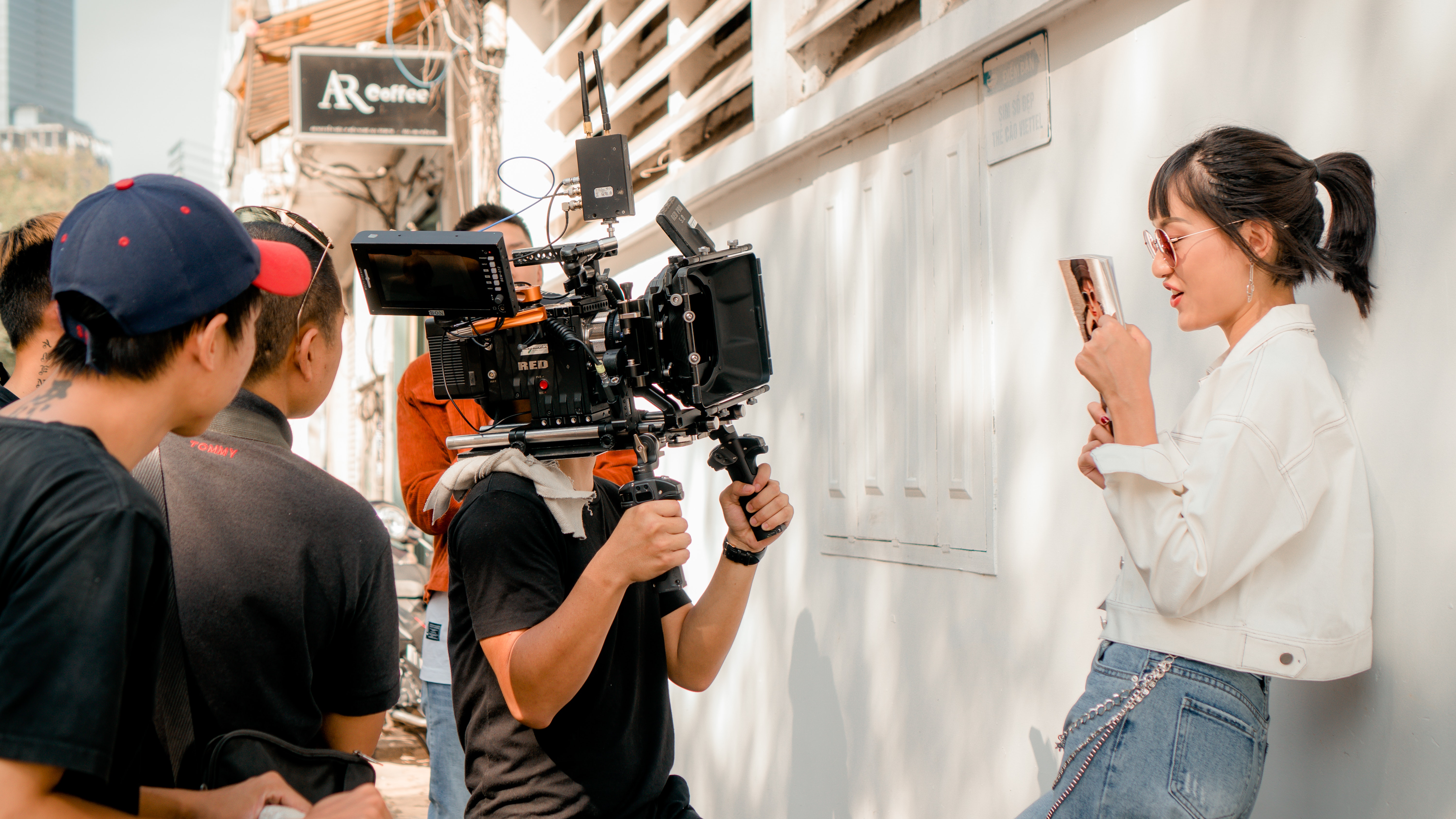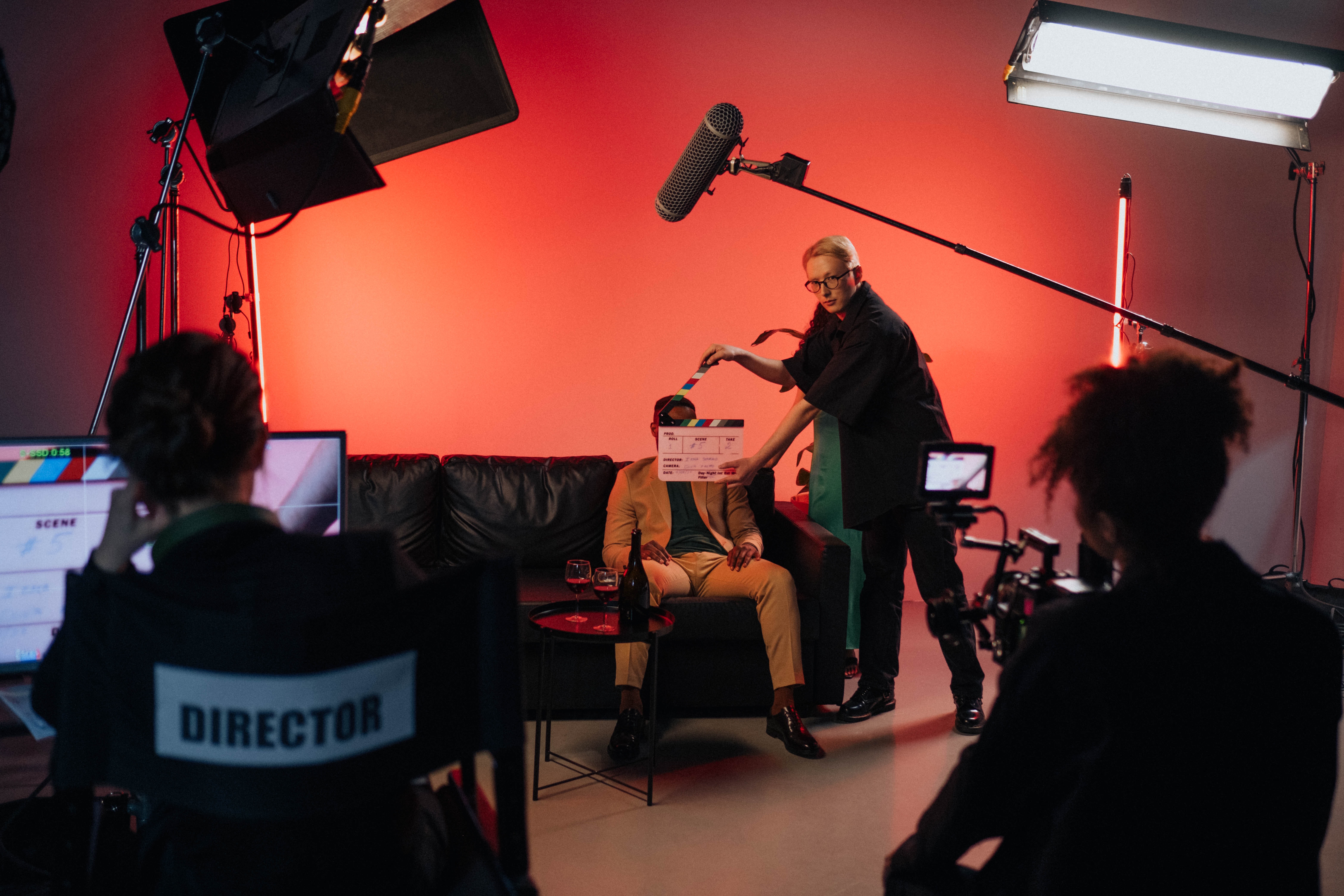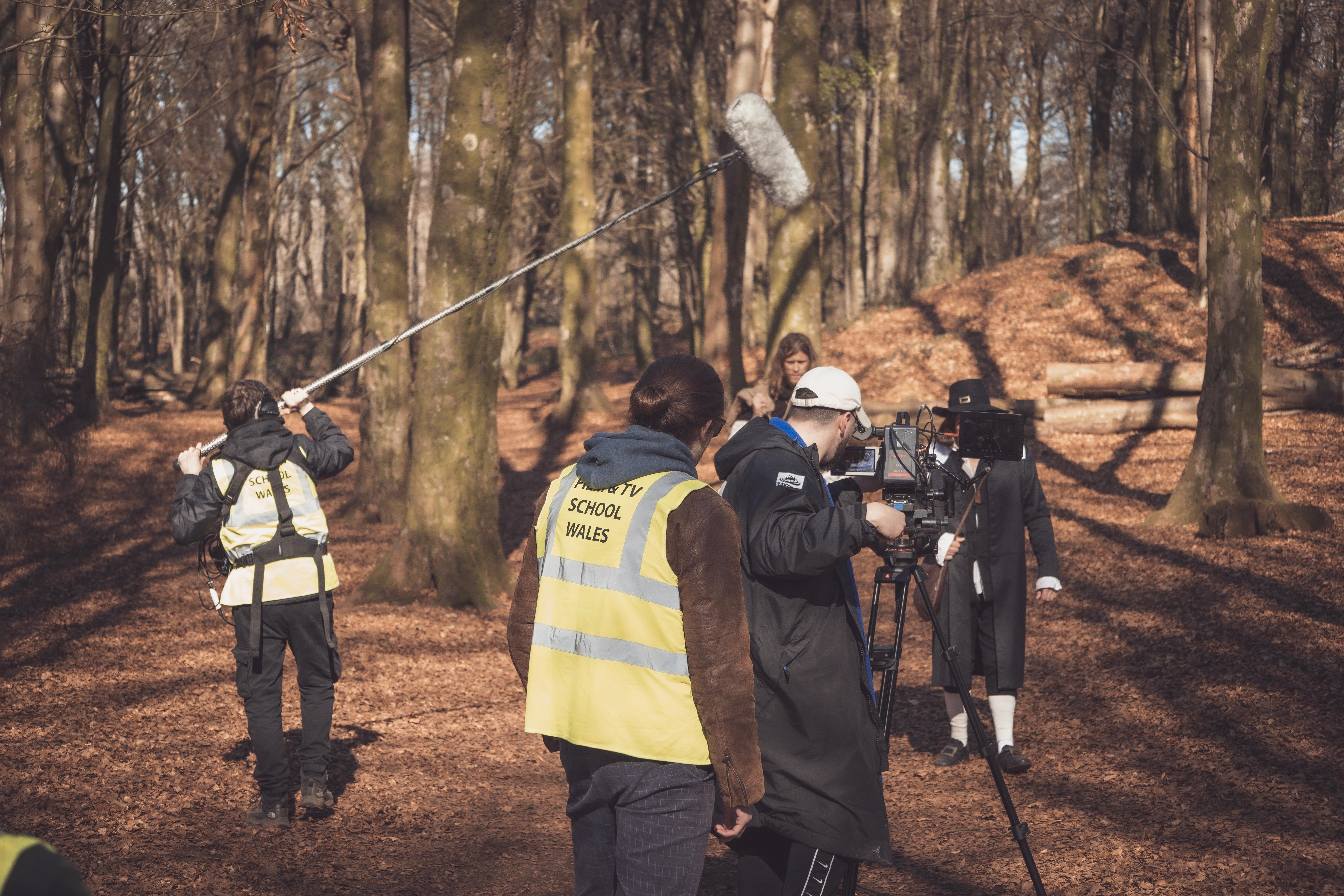How to Find a Film Crew to Help You Make Your Documentary

When I first started out making films this was something I really struggled with as no one else in my community were making films and all the professionals I found online were too busy to help out, so I just felt stuck. I then tried making films by myself and this was great for learning the basics of filmmaking but I quickly realised in order to move forwards in my filmmaking journey, I needed to collaborate with other filmmakers. So how do you find a crew when getting ready to shoot your documentary?
Assembling Your Film Crew: A Step-by-Step Guide
When putting together your team, work out what your strongest filmmaking skills are. For me, my strengths are directing and cinematography. For someone else it might be writing and producing - it doesn’t matter as long as you find other crew members who can help you with the skills you’re not so good at. I like to have a documentary filming crew of less than 10 people - depending on what and where I’m filming. This usually includes me as director and cinematographer, a producer, a soundman or woman, a camera assistant, a local guide and translator if needed, a driver, and a behind-the-scenes photographer and videographer who will capture and create marketing material for the documentary.

So, how do you assemble this crew?
Well, here are my 5 tips on how to find crew members to help you make your documentary.
Tips To Help You Find a Documentary Film Crew
1. Work on other peoples projects and go the extra mile:
80% of my filmmaking contacts have come from me working on other peoples films. It’s a brilliant way to meet like minded individuals and potential crew members. I remember after working on my first feature film almost 10 years ago. I made friends with lots of the other crew members by showing an interest in them and by offering them extra value outside of work hours - whether that was coiling cables, helping them film their projects or just by being an extra helpful hand. Then when I asked them if they’d like to get involved with my film project, they would usually say yes because we’d developed a friendship and I’d added extra value to their life in one way or another.

2. Connect with fellow filmmakers through online communities:
This is another great way to start networking and it’s something you can do right now. For example when I first started making films, before facebook was around, I would go onto filmmaking forums and create posts saying I need a VFX artist or a music composer and through this I would meet and end up working with people from all around the world. It’s incredible the opportunities that the internet has opened up when it comes to networking and we are no longer restricted by geography. It’s now about having a shared passion or interest. Like I mentioned in the previous tip, the best way to build a strong working relationships is to show an interest in somebody, add value to their life and share a bit about yourself and your filmmaking projects. You can do this with online communities by commenting and asking questions about the film projects that other group members are working on. Also offering free value and advice to anyone who asks for it and sharing updates of how you’re getting on with your own filmmaking endeavors makes others in the community feel like they’re a part of your filmmaking journey.

3. Attend film festivals and premieres in your local area:
Going to film festivals and premieres is another great way to network and meet people. Both these events are filled with filmmakers and film lovers. If there’s a documentary that you really connect with and the filmmakers that made the documentary are there, go up to them and say why you loved their film. You can also offer to take them out for a coffee to hear more about the making of the film and you could also offer to help them out on their next film project for free. This is how I met a good friend of mine called Jassa, who’s a producer and actor. We meet at a film premiere, got on really well, I helped him out on a few of his projects and since then he’s produced a number of my films.

4. Contact local film schools:
A great way to find upcoming talent is through film schools. Students are always looking for great learning experiences and working on a film is the best way to learn about filmmaking. Contact the film schools reception or see if they have a public facebook group where you can put a note up saying that you’re looking for crew members for your documentary. Say what filmmaking roles you need to be filled and the best way to contact you. Also get in touch with media studies teachers at local schools in your area and ask them if they have any star pupils that would like work experience making a film, and if they do, could the teacher pass on your details to them.

5. Ask your friends and family:
This is a great way to start out making films as there’s a lot less pressure and it can be really fun. Before the shoot day you can train your friend or family member up and show them what they have to do and how to use any equipment they might have to operate. For example when I first started making films I would get my close friends, who knew nothing about filmmaking to help out with holding the boom mic, camera or lighting equipment. I would spend a few hours before the shoot showing them how the equipment worked and what they needed to do. Sometimes it worked out really well, other times it didn't’. But I was always grateful to have an extra hand and for me, it was a great starting point and gave me experience of what it would be like working with other filmmakers.
Feed Your Film Crew
The key to keeping your crew happy and having them want to come back and work with you again is to feed them well, pay for their travel costs and show them how much you value their contribution to the project by sending them a thank-you package once the film is finished.
From my experience, if you do this, your crew will go over and beyond to help you make your documentary and as a result, you’ll have a better film. It’s important to remember you can only get so far in your filmmaking career by yourself. If you really want to improve as a filmmaker you need to collaborate with other filmmakers. And through this process, you’ll learn new ways of making films, build a rapport with your crew and hopefully continue working with them on projects in the future. For example, I met my good friend, and BAFTA-winning composer Lyndon Holland on a filmmaking forum when I first started making films over 10 years ago, and he’s somebody that I’ve collaborated with ever since and someone that I’ve learned a huge amount from, especially when it comes to music in films.

So make sure you get out there and using my 5 tips, start expanding your networking and collaborating with other filmmakers.
Free Documentary Filmmaking Training
If you want more value-packed filmmaking tips like in this blog, I’ve put together a free documentary training video where I share how I make cinematic documentaries. Click here to sign up and get instant access.
















